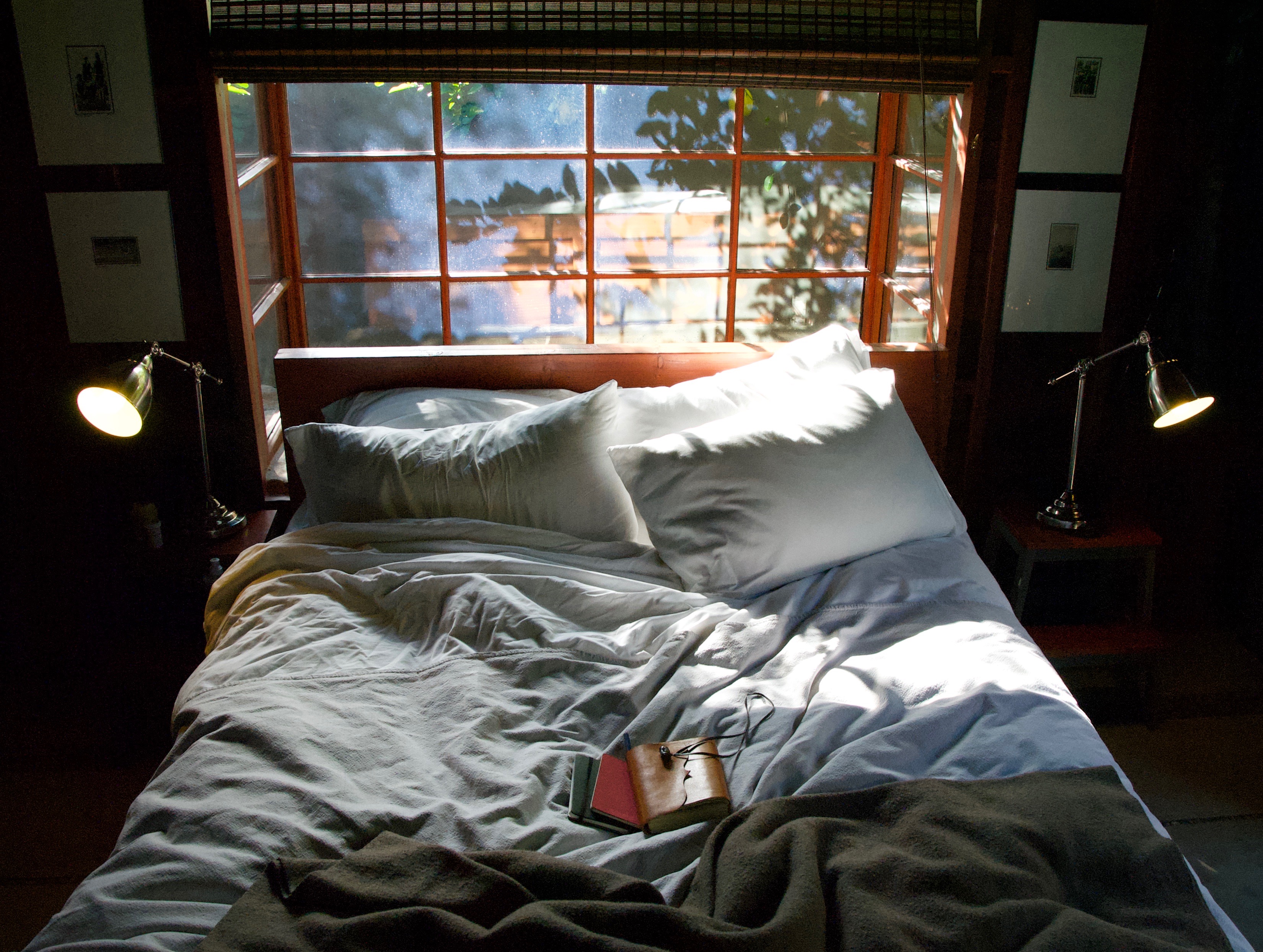Oneiromancy is the Ancient Greek art of using dreams to interpret the future– and since this early period in civilization, society has maintained a persistent and often controversial obsession with using dream interpretation for mental health.
Humankind has a long history of collective fascination with dreams– from early religious ceremonies to psychological thought leaders like Sigmund Freud and Carl Jung, to latter-day psychedelic drug experimenters like Timothy Leary.
In Hollywood, a myriad of sitcoms have played with the trope of using characters’ dreams to represent the subconscious. Stand-up comedians frequently cite dreams as launch pads for weird stories. Musicians use them as backdrops for music videos. And in addition to these cultural reference points, millions and millions of Internet searches about dreams are queried every day.
Everyone, it seems, becomes curious about their dreams at one point or another.
Recent quantifiable studies have shown that the brain is uniquely active and inventive in the first ten minutes after waking, as well as the last ten minutes before falling asleep.
Artists often refer to these creative periods of the day as sacred, a time when they experience heretofore invisible bouts of inspiration. (This is possible, some suspect, because these are times when people are usually very calm.)
This hypnagogia— a term used in psychology to refer to the state immediately before falling asleep— can be harnessed for idea generation and introspection. In this way, dream interpretation for mental health can be helpful in therapy settings– or so some therapists suggest. Dreams are, after all, a barometer of your subconscious thoughts. And subconscious thoughts have an impact on waking life, whether we like it or not.
People in creative industries often talk about keeping a notebook next to their bed in order to take notes. Otherwise, they may forget the details of lucid thoughts, visions, and/or dreams that can be particularly poignant.
Still, dream interpretation continues to have a sort of woo-ey connotation, especially in the realm of mental health. Dream interpretation is sort of like the science supporting the health benefits of coffee: one day they say it’s good for you, the next day it isn’t.
Similarly, with respect to dreams, some scientists say that they are highly symbolic, worthy of interpretation. In the extreme, analysts view them as direct portals to your innermost thoughts and fears.
Other neurologists and psychologists, however, also maintain that dream interpretation for mental health means absolutely nothing. The collective opinion from this camp is that dreams are basically like a screen saver for your resting mind; they are the result of leftover thoughts, emotions, and feelings that your brain mixes together and tells a story about while you sleep. This perspective is relatively unyielding. And yet: humanity’s fascination with dreams continues to persist. The reliability of dream interpretation, moreover, depends on who you ask.
Accordingly, the below information is not intended to diagnose or treat you in any way. This is just a compilation of research about the most common themes of scary dreams, and what some psychologists think they represent.
I don’t necessarily endorse dream interpretation as a healing practice for mental health, but I do think it can be constructive to discuss dreams with your therapist and what the various recurring themes in your dreams might mean for you. [TRIGGER WARNING: This post includes a discussion of graphic imagery that might be upsetting to some people. I include discussion of my own dreams in this post only as relevant examples. They should not be used to diagnose or treat any condition.]
For example, for many years when I was experiencing PTSD (post-traumatic-stress-disorder), a common theme in all of my dreams was a lack of preparedness.
A few years after graduating from college I randomly had panicky dreams about missing a test– or showing up to a classroom unprepared. (This dream would reoccur even though I was a good student and this never happened to me in real life. I was a working adult no longer in school, and this was never something I worried about when I was in school, either.)
I would also dream about natural disasters and technological failures like plane crashes or random acts of violence– all situations in which my dreaming self felt very afraid and powerless.
After a few years of therapy (in which I never really spoke about the dreams, because they never seemed relevant or serious enough in the moment), I realized that these two emotions– fear and helplessness– were defining emotions that I experienced when my trauma occurred.
As I later discovered through research, nightmares are a classic symptom of PTSD. In hindsight, the dreams I was having symbolized the things I needed to work on letting go of most. This is just food for thought as you ponder your own dreams.
Some other things you should know: According to the New York Times, narcoleptics spend more time in R.E.M. sleep than normal sleepers, which is why they report more frequent incidences of vivid dreams and nightmares.
People who are also sleep deprived or catching up on sleep– as one might do when sleeping for 9 hours on the weekend– are also more likely to have starkly vivid dreams. People who don’t sleep much spend less time in R.E.M., where dreams occur. As a result, they are less likely to have disturbing dreams (or any dreams at all).
Below, we discuss the most common themes in scary dreams, and what they represent. Dream interpretation for mental health is not really a clinical practice, but it is insightful. Below is a basic run-down of the most common scary “dream themes”– and what you can do to change the narrative.
***
Falling
There’s a reason why googling “what does falling in a dream mean” yields over 168,000,000 search results. The sensation of falling through a dream is one of the most common dreams in popular culture. Thought to represent unease, insecurity, and anxiety, falling in a dream also tends to happen more during transitional periods in life.
Psychiatrists associate falling dreams with feelings of overwhelm and lack of control. This doesn’t have to be something acutely dangerous, either.
A lack of control could be, for example, feeling like your vote doesn’t matter. Psychologist Ian Wallace claims that falling dreams “indicate that you’re hanging on too tightly to a particular situation in waking life. You need to relax and let go of it.”
Sigmund Freud thought falling represents fear of giving into a forbidden impulse (which for him, usually meant something sexual). Overall, the consensus says that falling dreams often occur when you’re ruminating on something that is out of your control.

Drowning
Dreams about drowning can be very dark. Especially during periods of job insecurity or when you or someone you love is suffering from a health problem.
Drowning in dreams, moreover, tends to represent overwhelm. It can also represent fear of being overcome with worry or difficult emotions. (It very clearly forces you to grapple with the idea of “fighting for your life”, etc.)
Having spiraling thoughts or racing thoughts before bed can increase the likelihood of having a dream about drowning, especially if you are an obsessive personality type or someone with a tendency to self-pity.
Because drowning represents a David vs. Goliath scenario (one small person against a huge, unstoppable force) these dreams tend to be very fatalistic, with no way out.
Usually this represents an acute threat or something that’s troubling you in your waking life. Consider reevaluating other stressors in your life, like work or family obligations. These might be increasing your stress threshold without you consciously realizing it.
Teeth Falling Out
Having one’s teeth fall out is a common recurring dream among people who are afraid of aging. Yes, that is very specific. This is because losing teeth in a dream tends to represent loss or lack of self-esteem, as well as regret.
This dream can also indicate that you are clenching your teeth at night. This can manifest as jaw pain or tension during the day. (If you struggle with severe tightness in your jaw, ask your dentist to fit you for a night guard. Or, try a topical remedy.)
Monsters
Lions and tigers and bears: oh my! The theme of “monsters” in dreams often happens with young children and teenagers, who experience more real social pressures, on average, than adults. Obviously, this is a metaphor.
Monsters represent many things. On the one hand, they can represent negative aspects of the dreamer’s personality (e.g. their worst qualities). Alternately, they can be a projection of a person or idea that is unsympathetic to the dreamer’s needs or desires. Both are bad.
If you are being wrongly persecuted by a boss, teacher, or bully, that fear may manifest as a dream about a monster. This is because monsters make us feel vulnerable in some tangible way. For some people, it’s easier to comprehend a visceral threat than the emotional pain a person or feeling may cause. In this way, monsters can be a conduit to something more abstract.
People From Your Past
People who have dreams about individuals from their past are often trying to reconcile the impact that this person had on them. This can be either positive or negative.
There is a popular myth/saying that “if you dream about a person, they’re dreaming about you, too”. We’ll probably never know if this is true. But, theory suggests that personalities from the past can signify extreme “held” memories. These are foundational memories that can bubble to the surface during periods of tumult or change. In the instance of loved ones, this is particularly so.
It is important to remember, however, that people in dreams don’t have to be taken literally: they can also be symbolic. People can represent missed opportunities, regret, longing for renewal or belonging, past trauma, or even the path not taken.
Accordingly, Vocata George, Ph.D., a Jungian Analyst at the Jung Education Center of Cleveland, recommends contemplating the overall theme of these kinds of dreams, not just the person in them. This approach is likely to yield more clarity than fixating on the person, specifically.
Tidal Waves
Tidal waves in dreams tend to act as a metaphor for fast, sweeping, life-altering change. This metaphor is usually pretty direct and intuitive. Tidal waves seemingly come out of nowhere and are capable of dramatically changing a landscape in minutes.
Accordingly, a tidal wave in a dream can radically shift your sleeping state. Water commonly represents emotions in dreams (thus the other common dream theme of drowning). Keeping with that extended metaphor, tidal waves therefore represent emotional upheaval.
Waves tend to parallel a mounting sense of panic– something that builds and swells with foreboding swiftness. Usually, they are a direct corollary to fear or stressors in real life.
Tidal waves in dreams can also be positive, however. They can represent a freeing release of bad habits or negative emotions. It can also be a signal of something you recently overcame, or suddenly realize you will be able to overcome. So, there’s that.
Sleeping Through an Alarm
Sleeping through an alarm in the world of a dream isn’t usually the scary part. The scary part is what the lack of alarm causes you to miss. This can be a test, a work event, or something big that you are anticipating. According to Matt Lundquist, LCSW and psychotherapist in Manhattan, this is called a “false awakening” and it doesn’t tend to have any traumatic effects on the dreamer.
This dream theme usually has a direct connection to something you’re anticipating in your real life. For example, you may dream of sleeping through an alarm the night before an important flight. Or, before giving an important presentation.
In those cases, the trigger for the dream state is usually obvious. This dream can also be a sympathetic reaction to what people around you might be worried about. Even if you don’t share that concern, if you discuss it enough it may appear in a dream.

Dreams That Take Place In Your Hometown
A Harvard study conducted with WWII soldiers in a confined camp showed a recurring dream theme among the men was them returning to their hometown only to realize that no one had noticed their absence.
This has been endlessly interpreted as a harbinger of the negative loneliness and isolation of war. But it’s also a much simpler symbol: hometowns are tremendous sources of nostalgia, regret, and fear. They are places that are always, necessarily, emotionally charged. Some people miss their hometown dearly; others view it as a place they are happy to have escaped.
Hometowns are the places that shape our worldview, which is they remain sentimental to us for the rest of our lives, for better or for worse. Dreams that disrupt this “sanctity”, so to speak, shake the very foundation of how we see ourselves– and what we view as safe, familiar, or beyond the reproach of an at-times destabilizing culture.
The writer Anaïs Nin is attributed with saying, “We don’t see the world as it is; we see it as we are.” So, too, of our hometowns. When a dream messes with our hometown, it’s messing with us. It disrupts our imagined sense of self and security, and how we see ourselves in the world.
Food
If you didn’t eat enough or ate too much before bed, surprise! Food is likely to be a repeat theme in any dreams you have that night. That’s because the mind is inextricably linked to the body. Even when our unconscious mind is in the dream state, it still has intelligent awareness of the body.
Food also represents nourishment and wellbeing to both our waking and unconscious mind. In dreams, it can represent wanting to have more of something– time, energy, acknowledgment for your work, or actual food.
In some cases, dreams about sharing food have spiritual connotations– but that’s beyond the purview of psychology at this point.
Autonomous regulatory systems like digestion rest and repair themselves while you sleep. This is why doctors say you shouldn’t eat before bed. If you do eat or eat too much, the mind will likely have something to say about it. (By producing a dream about food.)
FYI: You can also try to re-program your dreams before you sleep.
This is called “dream incubation” and it works really well for some people. (It’s worth trying at the very least, especially if you are having disturbing dreams.)
To incubate your dreams, repeat to yourself what you want to dream about before you fall asleep. Choose a mantra like “beautiful hikes, beautiful hikes, beautiful hikes” or “sunset, sunset, sunset” and see if that influences your dream state.
If you still have a nightmare, try re-writing the ending of the dream as soon as you wake up. (It helps to keep a notepad and pen near your bed for this purpose.) Therapists often recommend this technique, as it helps dissipate the dream’s grip on you by taking away its power.
By changing the plot and the ending, you inherently change the narrative. This more positive outcome will be what your brain best relates to during your waking hours. Dream interpretation may not improve your mental health, but this practice certainly will.
***
Related: 7-Step Guide to Preventing Racing Thoughts at Night.
Our comprehensive guide to the Simplest, Safest Herbal Remedies for Insomnia may also be helpful if you’re struggling to get restful sleep.
And if you’re having trouble sleeping because of anxiety: a weighted blanket might help, as can these 25 Research-Backed Tips for Meaningful Anxiety Relief.






Leave a Reply